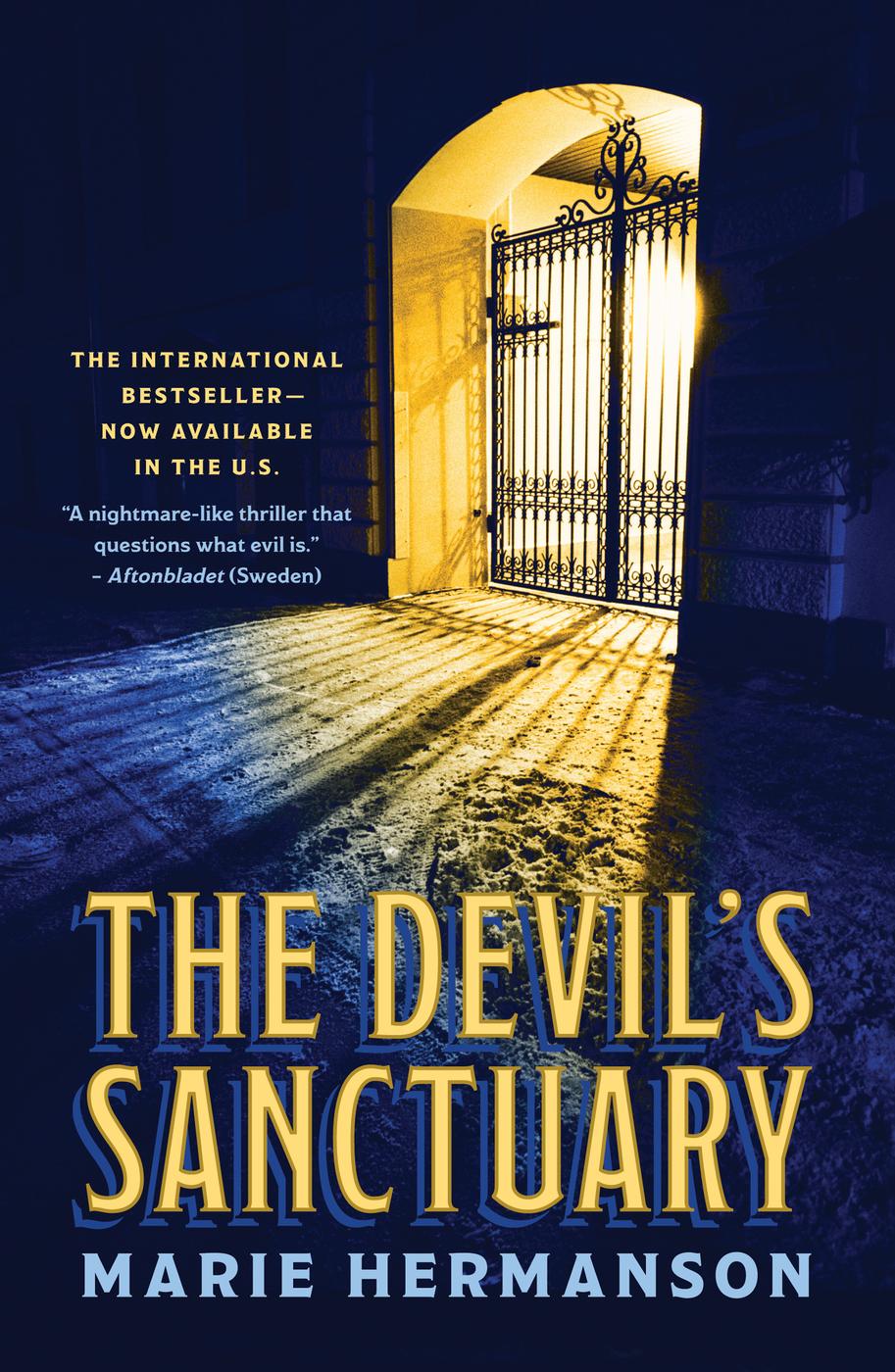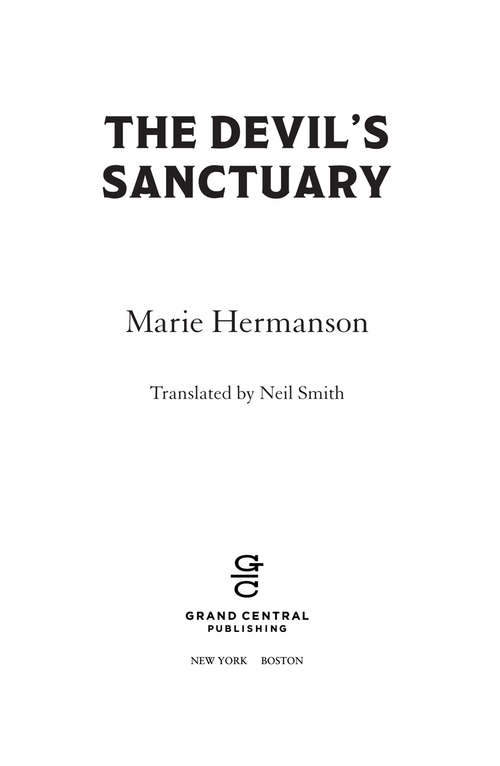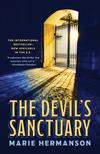The Devil's Sanctuary




In accordance with the U.S. Copyright Act of 1976, the scanning, uploading, and electronic sharing of any part of this book without the permission of the publisher constitute unlawful piracy and theft of the author’s intellectual property. If you would like to use material from the book (other than for review purposes), prior written permission must be obtained by contacting the publisher at [email protected]. Thank you for your support of the author’s rights.
Evil is merely a form of ineptitude.
—Bertolt Brecht
The Good Woman of Setzuan
WHEN DANIEL
received the letter, at first he thought it came from Hell.
It was a thick envelope, made of yellowish, coarse-fibered paper. There was no sender’s name, but Daniel’s name and address were written in the lazy, almost illegible capitals that were characteristic of his brother’s handwriting. As if they had been written in haste.
But the letter could hardly be from Max. Daniel couldn’t recall ever getting a letter or even a postcard from his brother. On the rare occasions that Max had been in touch, he had phoned.
The stamp was foreign. And obviously it didn’t say Hell, as he first thought with a shudder. The poorly printed postmark read “Helvetia.”
He took the letter with him into the kitchen and left it on the table while he sorted out the coffee machine. He usually had a cup of coffee and a couple of sandwiches instead of dinner when he got home. He ate lunch in the school cafeteria and, seeing as he was single, he never really felt like cooking just for himself later on.
As the old coffee machine rattled into action, he started to open the envelope with a bread knife but stopped when he noticed that his hands were shaking so badly he could hardly hold the knife steady. He was having trouble breathing; it felt like he’d tried to swallow something far too large. He had to sit down.
The way he felt about the as yet unopened letter was the same way he used to feel whenever he and Max met. Great joy at finally seeing him, an urge to run up to his brother and give him a big hug. But at the same time something holding him back. A vague, rumbling unease.
“I can at least read what he’s got to say,” he said out loud to himself in a voice that was steady and firm, as if a different, more sensible person were talking through him.
He took a firm grasp of the bread knife and opened the envelope.
GISELA OBERMANN
was sitting facing the big picture window, looking at the rocky mountainside on the other side of the valley. Its surface was smooth, yellowish white, as if a sheet of paper had been stretched out, and there were elements of something black. She realized she was trying to discern letters.
At the top, the rocky wall was crowned by a fringe of audacious fir trees. Some of them had gotten too close to the edge and were hanging there like broken matches.
The faces around the conference table faded away into the light shining behind them, their voices like a radio that had been turned down.
“Any visits this week?” someone asked.
She felt tired and thirsty, washed out. It was the wine she had drunk last night. But not just the wine.
“We’ve got one relative’s visit booked in,” Doctor Fischer said. “To see Max. But I think that’s all.”
Gisela woke up.
“Who’s coming to see him?” she asked in surprise.
“His brother.”
“Oh. I didn’t think they were in touch with each other.”
“It’s bound to be good for him,” Hedda Heine said. “It’s the first visit he’s had since he’s been here, isn’t it?”
“Possibly.”
“Yes, it’s his first visit,” Gisela confirmed. “That’s nice. Things are looking very positive with Max right now. He’s struck me as very happy and harmonious lately. It’s bound to do him good to get a visit from his brother. When’s he coming?”
“He should get here this afternoon or evening,” Karl Fischer said, glancing at the time as he gathered his papers. “Are we done?”
A man in his forties with a red beard waved his hand anxiously.
“Brian?”
“No news about Mattias Block?”
“I’m afraid not. But the search is still going on.”
Doctor Fischer gathered his papers and stood up. The others followed.
Typical, Gisela Obermann thought. Max’s brother is coming today. And no one bothered to tell me, his doctor.
That was the way things worked in this place. That was why she was so tired. Her boundless energy, which had always cut like a knife through all resistance, was impotent here. It glanced off the walls that surrounded her and turned in on herself.
DANIEL WENT
with the flow toward the exit of the airport, where a small gaggle of taxi drivers were holding up handwritten signs with people’s names. He glanced at them, pointed at the one bearing his name, and said in German: “That’s me.”
The taxi driver nodded and led him to a van with eight seats. Daniel appeared to be the only passenger. He got in as the driver took care of his luggage.
“Is it far?” he asked.
“About three hours. We’ll have a break on the way,” the driver said, sliding the door shut.
They left Zurich and headed round the side of a large lake surrounded by forest-clad mountains. Daniel would have liked to ask the driver about things they passed en route, but there was a glass screen separating them. He leaned back in his seat and ran his fingers through his beard, a gesture he repeated several times during the journey.
It wasn’t only fraternal interest that had made him agree to the visit, he had to admit. His finances weren’t in great shape. His temporary post at the school would come to an end in the autumn when the usual teacher returned from maternity leave. He might be able to get a bit of work as a substitute teacher, and maybe some translating. He couldn’t afford to go away on vacation anywhere this summer. Max’s offer to pay for the ticket to Switzerland had been very tempting. After visiting the clinic he could stay on for a week in a little hotel in the foothills and spend the days doing some moderately strenuous hiking in the beautiful countryside.
Outside the van window the greenery flashed past. Elms, ash trees, hazel. There were neat little houses with sloping gardens along the shore of the lake. Large brown birds sailed slowly above the road.
In recent years Daniel had had little contact with his brother. Like him, Max had lived abroad, first in London and then other places, where, to the best of Daniel’s knowledge, he had been involved in some sort of business.
Ever since they were young Max had always seemed to be on a roller-coaster ride of success and failure, all caused by himself. He could be impressively inventive, almost inhumanly energetic when he started a project. Then, all of a sudden, when he had gotten what he wanted and more besides, he would lose all interest and walk away with a shrug of the shoulders while his colleagues and customers tried desperately to contact him on switched-off phones and at abandoned offices.
On several occasions the brothers’ long-suffering father had had to step in and rescue Max from various scrapes. Maybe it was the turbulence surrounding his unpredictable son that had led to his collapse on the bathroom floor one morning from the heart attack that had ended his life shortly afterward.
A psychiatric assessment conducted in conjunction with a court case had concluded that Max suffered from bipolar disorder. The diagnosis explained much of the mysterious chaos that always seemed to surround Max: his daring business ventures, his self-destructive behavior, and his inability to maintain long-term relationships with women.
Every now and then Daniel used to get a phone call from his brother. On those occasions Max always sounded slightly drunk, and the calls usually came at strange times of day.
When their mother died Daniel went to great lengths to get hold of him, but without success, and the funeral went ahead in Max’s absence. Somehow the news must have reached him anyway, because he called a couple of months later wanting to know where their mother was buried so he could take some flowers. Daniel had suggested meeting up and going together. Max promised to get in touch when he got to Sweden but never did.
The glass screen slid open. The taxi driver glanced round and said, “We’ll reach an inn soon. Would you like to stop for something to eat?”
“Not eat, but I’d like a cup of coffee,” Daniel replied.
The glass screen slid closed again. Shortly after that they stopped at the small inn and each stood at the counter and had an espresso. They didn’t say anything to each other, and Daniel was grateful for the cheesy pop music blaring from the speakers.
“Have you been to Himmelstal before?” the driver eventually asked.
“No, never. I’m visiting my brother.”
The driver nodded as if he already knew that.
“Do you often drive people there?” Daniel asked cautiously.
“Now and then. More in the nineties when it was a plastic-surgery clinic. Christ, I used to drive people who looked like mummies. Not everyone could afford to stay until his or her wounds had healed. I remember one woman, you could only see her eyes through the bandages. And what eyes! Swollen, crying, sadder than you can imagine. She was in so much pain that she couldn’t stop crying. When we stopped here—I always stop here, it’s exactly halfway to Zurich—she sat in the van and I had to get orange juice and a straw for her, and she sat there in the backseat slurping it up. Her husband had a younger mistress and she’d had a face-lift to get him back. Christ. “I’m sure it’ll all be fine. You’re going to look beautiful,” I said as I held her hand. Shit…”
“And now? What sort of place is it now?” Daniel asked.
The driver stopped with his little espresso cup in midair and gave him a quick glance. “Hasn’t your brother told you?”
“Not exactly. I think he said it was some sort of rehab clinic.”
“Right. Yes, that’s it.” The driver nodded eagerly and put the cup down on the saucer. “Shall we carry on?”
Daniel dozed off as the van started again, and when he next opened his eyes they were in a valley of green meadows lit up by the evening sun. He’d never seen such an intense green color anywhere in nature before. It looked artificial, created by chemical additives. Maybe it was the result of the light.
The valley got narrower and the scenery changed. To the right of the road an almost vertical rock face rose up, shading the sun and making the inside of the van darker.
Suddenly the driver braked. A man in a short-sleeved uniform shirt and peaked cap was blocking their path. Behind him was a lowered barrier. A little farther on was a parked van, from which a second uniformed man was approaching.
The driver lowered his window and exchanged a few words with one of the men as his colleague opened the rear door of the van. The glass screen between the front and rear seats was still closed, so Daniel couldn’t hear what was being said. He opened the window in his own door and listened. The man was chatting amiably enough with the driver, apparently about the weather. He was speaking a German dialect that was difficult to understand.
Then he leaned in through Daniel’s window and asked to see his ID. Daniel handed him his passport. The man said something he didn’t understand.
“You can get out,” the driver translated. He had turned round and opened the screen between them now.
“I have to get out?”
The driver nodded encouragingly.
Daniel got out of the van. They were standing right next to the rock face, which was covered in moss and ferns. There was water trickling down it in various places. He could smell the mountain, cool and acidic.
The man held out a metal detector and ran it quickly over Daniel’s body, front and back.
“You’ve come a long way,” he said in a friendly voice, handing back the passport.
His colleague put Daniel’s suitcase back in the van after going through it, and closed the door.
“Yes, I caught a plane from Stockholm this morning,” Daniel replied.
The man with the metal detector leaned inside the van and ran it quickly over the backseat, then indicated that he was done.
“You can get back in,” the driver said with a nod to Daniel.
The men saluted and the driver started the van as the barrier slid upward.
Daniel leaned toward the driver’s seat to ask a question, but the driver preempted him.
“Routine check. Swiss thoroughness,” he said, then pressed the button to close the glass screen in Daniel’s face.
Through his open window he saw the mossy rock face rush past and heard the reflected, amplified sound of the engine.
He felt uneasy. The security check had reawakened his anxieties. He didn’t imagine that this was just a social visit. If Max had chosen to get in touch after all these years, there had to be a good reason. Max needed him.
The thought both moved and saddened him. Because how could he help his brother? You had to admit after so many years of disappointed hope that Max was beyond all help.
He consoled himself with the fact that his visit on its own was a sign of goodwill. He had come when Max had called. He would listen to him, be there for him. And then, after a couple of hours, he would leave again. There was no question that there would be any more to it than that.
The van went round a sharp left-hand bend. Daniel opened his eyes. He saw sloping meadows, a forest of fir trees, and, some way off, a village and church spire. A woman was working in a garden, bent over in a sea of dahlias. She straightened up as they approached and waved with a small trowel.
The driver turned off onto a smaller road leading up the hillside. They passed through a patch of forest and the climb got steeper.
Shortly after that Daniel saw the clinic, an imposing nineteenth-century building surrounded by a park. The driver drove right up to the main entrance, took out Daniel’s suitcase, and opened the passenger door.
The air that flooded into the vehicle was so clean and bright that his lungs trembled with surprise.
“Well, we’re here.”
